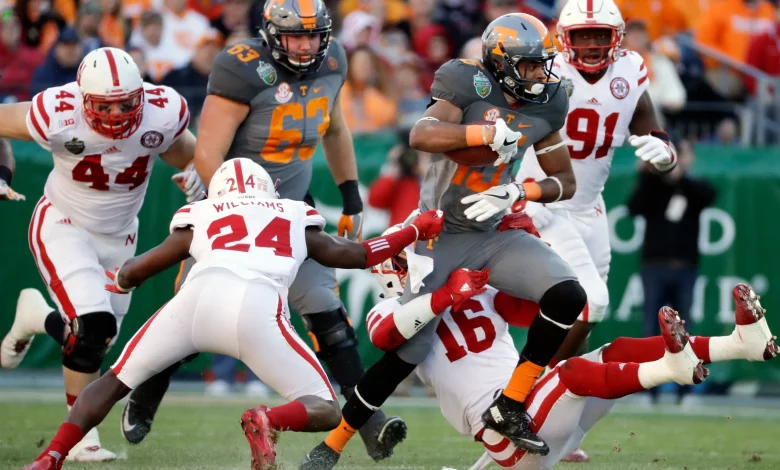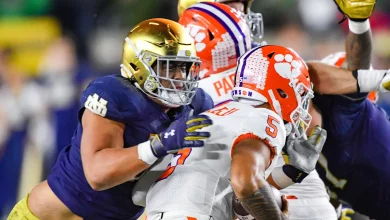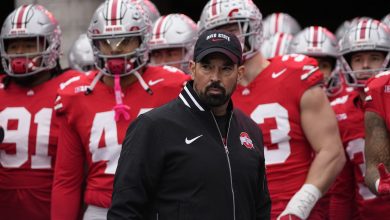Nebraska drops football series with Tennessee, and the Vols are not happy

The landscape of college football scheduling is filled with a complex mix of tradition, conference obligations, and non-conference games that shape each team’s season. For the Tennessee Volunteers, an upcoming non-conference series against Nebraska was expected to be a marquee event—one that would continue to bolster their already strong football reputation. However, news broke that Nebraska had dropped the planned football series with Tennessee, much to the disappointment of the Vols’ fans, coaching staff, and players. In this article, we will delve into the reasons behind Nebraska’s decision to pull out of the series, the ramifications for Tennessee, and what the move says about the changing nature of college football scheduling.
Nebraska Drops the Series: Why the Move Was Made
It was an unexpected and somewhat baffling announcement for both Nebraska and Tennessee fans when the Cornhuskers decided to cancel their previously agreed-upon series with the Volunteers. Originally scheduled to begin in 2025, the series was slated to be a part of the non-conference slate for both teams, with games set to be played both in Knoxville and Lincoln. These matchups had the potential to feature two historically strong college football programs, each with a passionate fanbase and rich traditions.
While Nebraska did not go into extensive detail about the reasons behind the cancellation, there are a few factors that likely played a role.
1. Conference Realignment and Scheduling Constraints:
One of the most significant impacts on college football scheduling in recent years has been the wave of conference realignment. As power conferences continue to evolve and expand, teams are increasingly required to play more conference games, reducing the number of non-conference matchups they can schedule. In Nebraska’s case, the team is a part of the Big Ten Conference, which has been growing in terms of media rights deals, recruiting power, and overall competitiveness. With the addition of teams like UCLA and USC in 2024, Nebraska’s conference schedule has only become more congested.
The Big Ten’s commitment to a 9-game conference schedule means that teams are left with fewer opportunities to schedule non-conference games. In an effort to prioritize important in-conference matchups and maintain a competitive edge within the conference, Nebraska may have opted to drop their non-conference commitments in favor of flexibility to schedule other power programs or to focus on their own internal development.
2. Future Scheduling Strategy:
Another factor could be Nebraska’s evolving scheduling strategy. Since Nebraska’s transition to the Big Ten in 2011, the program has navigated a complex and at times tumultuous transition. There have been coaching changes, fluctuating performance on the field, and growing pains as the Cornhuskers tried to re-establish themselves as a powerhouse in their new conference. In light of this, the athletic department may have reevaluated its approach to non-conference scheduling and decided that the matchups with Tennessee—one of the SEC’s storied programs—were a bit too risky.
Tennessee, under head coach Josh Heupel, has seen significant progress in recent seasons, with the team returning to national relevance after years of mediocrity. The Vols’ potent offense, led by quarterback Joe Milton III and dynamic playmakers, has raised their profile, and the series with Nebraska would no longer look like a balanced matchup. Nebraska may have felt that facing Tennessee in a non-conference setting could expose some of their weaknesses and potentially hurt their overall program reputation as they attempt to rebuild.
3. Potential Financial and Travel Considerations:
Travel and financial logistics are other possible reasons why Nebraska might have chosen to drop the series. Scheduling games against programs in far-flung regions, such as Tennessee, can involve significant travel costs and logistical hurdles, especially when it comes to managing a large football team and staff. Additionally, Nebraska’s athletic department may have assessed that the financial return from the Tennessee series wasn’t sufficient compared to the long-term benefits of other scheduling opportunities. Non-conference games are important for generating revenue, but they also come with costs, and athletic departments often evaluate whether such games are worth the expense.
Tennessee’s Disappointment: A Loss for the Volunteers and Their Fans
For Tennessee, the news of Nebraska backing out of the series was a major disappointment. The Volunteers were looking forward to a high-profile matchup against a proud program in Nebraska, as these types of games provide opportunities for significant exposure and recruiting advantages.
1. Recruiting and National Exposure:
Tennessee, like all top-tier programs, is constantly looking for ways to improve its recruiting. Playing a prestigious program like Nebraska would have allowed the Vols to gain exposure in a different region of the country, possibly attracting recruits from the Midwest who might not otherwise consider Tennessee. The matchups with Nebraska were seen as an excellent chance for the Volunteers to showcase their program’s resurgence under Heupel on a national stage.
Additionally, non-conference games are often critical for teams to build strength-of-schedule metrics, which ultimately impact the College Football Playoff selection committee. By playing a prominent program from the Big Ten, Tennessee would have increased its chances of being noticed by playoff committees if the season turned out to be one where the Vols were vying for a playoff spot.
2. History and Tradition:
The historical significance of a Tennessee-Nebraska matchup is not lost on fans of either team. Both programs have storied football histories, with Nebraska having won five national championships and Tennessee holding multiple championships of its own. Over the years, both teams have been powerhouses in college football, and any game between the two would have added to the rich tradition of their respective programs.
Tennessee fans were excited about the prospect of facing a team with such a successful history, and the Vols had high hopes for the series, which could have rekindled memories of classic matchups in previous decades. Now, with Nebraska pulling out, Tennessee has lost an opportunity to engage in what could have been a truly special and memorable series.
3. Scheduling Uncertainty:
Tennessee’s scheduling situation is also complicated by the ongoing realignment of college football. As the SEC continues to evolve, including with the addition of Oklahoma and Texas, teams like Tennessee are trying to balance their conference schedules with non-conference commitments. With SEC play becoming increasingly more competitive, non-conference games are a way to provide relief and challenge teams to improve against programs from other power conferences.
For Tennessee, the cancellation of this series creates a scheduling hole that will need to be filled with another quality opponent. The Vols will likely be forced to find a comparable opponent, but the loss of Nebraska, a traditional power, might limit their options. College football scheduling has always been a complex process, but with the increased pressure of conference expansion and playoff considerations, finding the right mix of games can be more difficult than ever.
What’s Next for Tennessee’s Scheduling and Nebraska’s Future
In the aftermath of Nebraska’s decision, both teams will now have to navigate new scheduling paths. For Tennessee, the immediate priority will be securing a replacement opponent for the open spot on their 2025 schedule. Ideally, the Vols would seek out another high-profile, nationally recognized program to replace Nebraska, which would help maintain the strength of their schedule. Possible replacements could come from programs like UCLA, Arizona State, or Michigan State, who are in need of challenging non-conference matchups.
For Nebraska, the move to back out of the Tennessee series could indicate a shifting approach to scheduling as they look to recalibrate under head coach Matt Rhule. As Nebraska continues to rebuild under Rhule’s leadership, the Cornhuskers will need to find a balance between tough non-conference matchups and the increased difficulty of their Big Ten schedule. Nebraska may look to schedule more regional rivals or focus on other power-five programs that can help solidify their standing without facing too many potential pitfalls.









